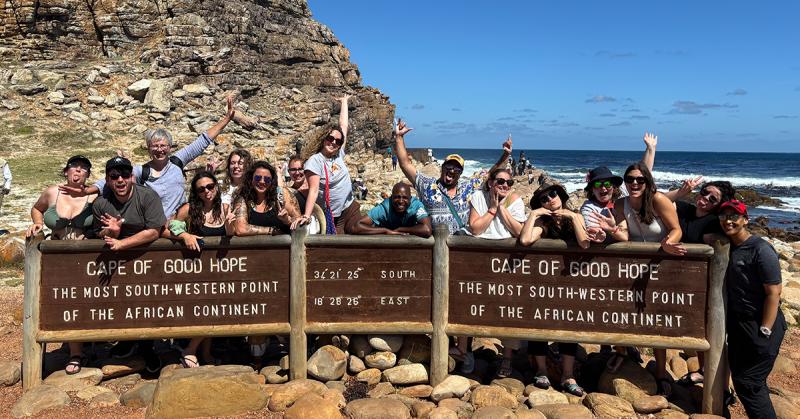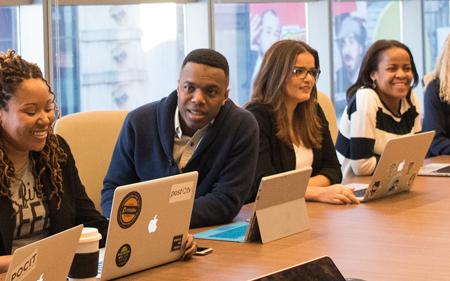Cultivating Cross-Cultural Understanding
The course includes three pre-departure classroom sessions followed by two weeks in South Africa, where students complete a wilderness backpacking experience alongside South African social workers they later job-shadow with. The course also includes a homestay and activities such as a walking tour of the Langa township led by a local resident. Course assignments include readings and discussions, six brief reflection papers, and a final digital media project that allows students to delve deeper into a topic of their choice from their South Africa experiences.
Denver Campus MSW student Rachel Eriksen recalls, “I gained a greater understanding of the role of joy as a tool for resistance and resilience, which I learned from my friends in Langa. In Langa I also regained a sense of what community care could look like.”
Assistant Professor of the Practice Emily Saltzman, a member of the GSSW field faculty, will begin teaching the South Africa course herself this year. She notes, “Because we’re spending a lot of time together, there’s connection — opportunities to have conversation, reciprocal cultural sharing. Students are talking about what’s going on with them in the U.S. There’s a significant amount of time where we’re building relationships.”
Personal growth is another emphasis, Bensen says.
MSW@Denver student Matthew Grey particularly valued that aspect. The wilderness experience pushed him beyond his comfort zone and gave him the opportunity to practice leadership and communication skills. He says, “We’re all having this shared common experience of sleeping under the stars and diving into these deep conversations about belonging and community. I’ll take that increased empathy and sensitivity and ways of knowing and being into the world.”
Tirado agrees. She completed her job-shadow at the Amathuba Collective, which supports young people as they start their careers. Across all the course experiences, she says, “Finding moments to connect with others, finding strengths, bringing each other up — it was really beautiful. What I’m going to take with me into my social work career is really taking the time to connect with people, to understand someone’s perspective, culture, experiences. Part of why I chose social work over counseling is because you’re looking at all the different systems that create behavior.”
Bensen adds, “This practice of looking at the context of people’s lives, the context of culture and life experience, the context of the greater culture of collectivism versus individualism — there’s so many factors that play a part in people’s lives. It’s easier to see it clearly when you’re in another country then transfer that skill back to the U.S. and remember the number of different things that affect people’s lives and make them who they are. The course helps you learn about yourself, and it helps you learn to look at people’s lives more deeply and how that context affects who they are.”
Grey job-shadowed at the Pride Shelter Trust, which provides short-term accommodation for LGBTQI+ people experiencing crisis. The shelter says it is the first of its kind in Africa. Grey was struck by the magnitude of the challenges the shelter faces, including an extremely small budget that doesn’t allow for long-term planning. He hopes to stay engaged with the organization and find ongoing ways to support their work.
Eriksen, who is pursuing an Ecological Justice specialization and Global Social Work certificate, completed a job-shadow at Streetscapes, which is working to end homelessness in Cape Town. “My experience at Streetscapes really solidified my belief in holistic and regenerative approaches for social change, and it is something that I plan to incorporate into whichever level — micro, mezzo, or macro — of social work I find myself in after graduation.”
Eriksen adds, “This [course] was a transformative experience for me and deeply educational. It not only helped me with new positive ways of viewing and being in the world, but it also helped me to home in on what I want for my future social work practice and new ideas for changes that I would like to see in social work in the U.S.”





